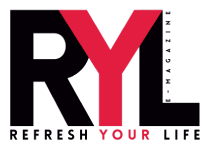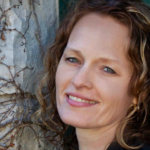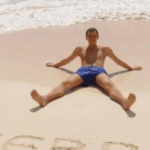WORDS: MATEJA ĐOLIĆ
The very necessity to pose this question indicates a profound lack of understanding about its meaning and its role in our daily lives. The question itself stems not only from semantic ambiguity but also from the implicit assumptions embedded within it. While I know I am free to vote, prefer a movie genre, or choose an ice cream flavour, how much of this is truly unobstructed expression?
As Martin Heidegger suggests, human existence—or Dasein—unfolds within a network of interrelated things, events, and people, making the notion of complete unobstructed expression highly debatable. Therefore, we must address the origin of freedom through deconstruction and genealogy, seeking deeper insight by examining its roots.
A critical discussion is needed to determine whether freedom is innate, perhaps divinely imparted, or a social construct born from our capacity for choice, reflection, and agency. These dual perspectives—one divine, the other secular—may ultimately be two sides of the same coin, differing only in their ontological basis.
If freedom is a personal aptitude, it suggests ownership and the notion that it can be possessed and thus taken away. Alternatively, if freedom is an emergent quality of a binary reality, it surfaces through the act of making choices between distinct options. This would turn ‘freedom’ more into an emergent event than a possession, one that reveals itself through the imminent distinction of things in a relational arrangement.
Regardless of the argument or conceptualization of freedom, the common denominator consistently remains the individual. Using the classic “chicken or the egg” analogy, it becomes challenging to explain how an ‘event’ of freedom could emerge without an individual deliberating on personal choices, such as whether the red or white shirt better aligns with a desired fashion statement for a significant event.
From an intellectual perspective, one might question how it is even possible to assert the existence of the shirt without first imparting meaning to the craftsmanship of its interwoven fabric. However, I digress…
To explain freedom, we therefore begin with our ability to choose. Choice, by definition, must be associated with our desires and need for self-expression. Thus, freedom carries with it, or is ontologically tied to, an existential need for self-actualization. As Mark Twain would say, “We are all born twice, the second time when we realise why.”
The intrinsic need for self-expression and self-actualization introduces a complex duality. On the one hand, grounding self-expression and self-actualization in actions and choices aimed at attainment—whether of goods, services, aptitudes, traits, or abilities—offers a coherent framework for understanding how the phenomenon of freedom is manifested.

On the other hand, the assumption of such a flawless relationship rests on two crucial points: first, that the chronology between desire, intent, action, and the envisioned result is unobstructed, and second, that the alignment between them is full and complete, thus reflecting an untainted intent.
This can be best illustrated with mundane examples, such as satisfying hunger. Suppose one desires a slice of pizza, goes to a shop, and purchases what appears to be the best option among many. Yet, upon consumption, the anticipated level of satisfaction is not achieved. This leads one to ponder whether eating a cake instead might better ‘hit the spot.’ This same experience of ‘lack’ tends to emerge in many other domains of intended attainment— academic goals, personal milestones, and interpersonal relationships. As noted by Driver (2012):
We learn our desires from others, but these articulated desires never truly fulfil our unconscious needs, leaving us with a sense of emptiness. In attempting to define ourselves and our desires through language, we become trapped in what Lacan called the imaginary order, a misrepresentation that leads to encounters with an alienated self and others.
At this juncture, theologians advance the secular sciences. In a world characterised by impermanence and constant change, where the ebbs and flows of energy follow the path of least resistance, the coherent connection between intent, action, and result exists largely in the minds of individuals as an illusory notion of control.
While acknowledging the innate biological urges and necessities for self-preservation, the concept of a world in which we cannot be the stewards of our own lives becomes difficult to accept and internalise. Psychological illnesses such as depression and anxiety often emerge from an obsession with anticipation.
Instead of freedom, the rather enforced relationship between intent and outcome of action becomes a psychological incarceration, if devoid of rather artistic ‘manoeuvring’ called faith.
Freedom, rather paradoxically, resides in the willingness to renounce attachment to the intended outcomes of our actions. This concept of freedom is echoed in various ancient teachings. Mahatma Gandhi famously stated that the essence of the Bhagavad Gita can be summarised in the principle of “selfless action,” which means performing one’s duty without attachment to the results. Similarly, Christian teachings encourage individuals to “deny themselves” and “take up their cross.” In both Islam and Christianity, there is a fundamental recognition that every intent is subject to the overriding authority of “God’s Will,” which ultimately determines the outcome of any desired event.
True and real freedom or free will therefore rests in a paradox: the acceptance and ability to not exercise our rights. It is embedded in the psychological struggle that reduces or completely eliminates the dominance of needs and necessities, disburdening the subject from its envisioned and illusory boundaries and conditions.
Self-actualisation is therefore an emergent quality of freedom, one which can be described as a return to ‘Heaven’ or as a return ‘home’ (i.e. to oneself), because ascent in the true sense of the word can only eventuate providing that the lightness of entity ascending is sufficiently calibrated or crafted to match the environment which it needs to transcend.



